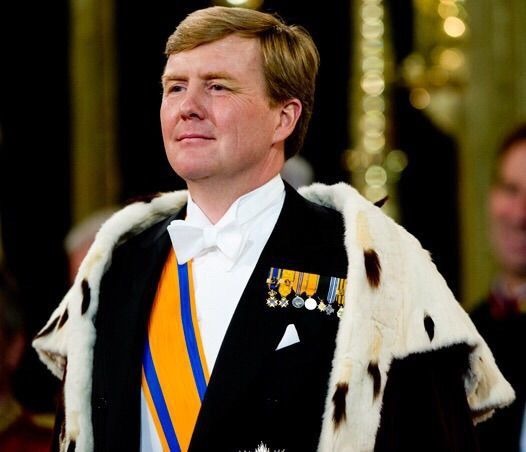Dutch King Willem-Alexander has formally apologised for the Netherlands’ involvement in slavery, saying he felt “personally and intensely” affected.
The king was speaking at a ceremony on Saturday marking the 160th anniversary of the legal abolition of slavery in the Netherlands, including its former colonies in the Caribbean.
“I’m standing here in front of you as your king and as part of the government. Today I am apologising myself,” Willem-Alexander said. “On this day we remember the Dutch history of slavery, I ask forgiveness for this crime against humanity.”
He said racism in Dutch society remains a problem and not everyone would support his apology.
The slave trade brought vast riches to his ancestors. The Dutch funded the so-called Golden Age of their empire and culture in the 16th and 17th centuries by shipping about 600,000 Africans as part of the slave trade, mostly to South America and the Caribbean.
In December, Prime Minister Mark Rutte apologised on behalf of the Dutch state. The monarch acknowledged the apology saying “a start has been made” but also there was “still a long way to go”.
‘Moral duty to act’
Descendants of slaves had called for the king to use Saturday’s ceremony at the Oosterpark in Amsterdam to apologise.
In his speech broadcast live on national television, Willem-Alexander asked for “forgiveness” saying while nothing had been done about the past for a long time, “at some point, one feels the moral duty to act”.
“The chains have truly been broken,” Willem-Alexander said to cheers and applause from thousands of onlookers at the national slavery monument.
Slavery was formally abolished in Suriname and other Dutch-held lands on July 1, 1863, but the practice only really ended in 1873 after a 10-year transition period.
A Dutch study released in June found the royal family earned 545 million euros ($595m) in today’s terms between 1675 and 1770 from the colonies, where slavery was widespread.
The current king’s distant ancestors, Willem III, Willem IV, and Willem V, were among the biggest earners from what the report called the Dutch state’s “deliberate, structural, and long-term involvement” in slavery.
Since the Black Lives Matter movement emerged in the United States, the Netherlands has embarked on an often difficult debate about its colonial and slave-trading past that turned it into one of the world’s richest countries.

Reparatory justice?
In 2022, King Willem-Alexander announced he was ditching the royal Golden Coach that traditionally transported him on state occasions because it had images of slavery on its sides.
One side panel had a picture called Tribute of the Colonies depicting kneeling black people handing over produce such as cocoa and sugarcane to their white masters.
While some European leaders have apologised for their country’s colonial past, others have refused to take that step.
In January, French President Emmanuel Macron stated he will not “ask forgiveness” from Algeria for French colonisation, but hoped to continue working towards reconciliation.
“It’s not up to me to ask forgiveness, that’s not what this is about, that word would break all of our ties,” he said in an interview.
British Prime Minister Rishi Sunak also rejected calls to apologise and offer reparatory justice for victims of the British slave trade and imperialism, saying the attempt to “unpick our history” was not something the government would “focus its energy on”.
Source: Al Jazeera


